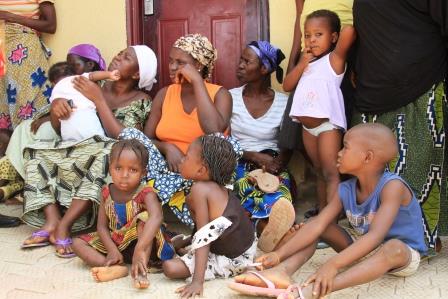By Becky John
Some experts on Tuesday called for effective implementation of policies which promote the rights and access of women to quality health care while boosting women empowerment in Nigeria. They made the call at a workshop organised by partners on the NOTAGAIN Campaign Initiative in Lagos to mark the International Women’s Day.
The programme was entitled: “End Maternal Mortality: Time to make it happen.’’ Every March 8 is the International Women’s Day to celebrate the rights of women and girls.
Mr Ayodele Adesanmi, the Programme Officer of Media, Development Communications (DevComs) Network, decried low access of women to healthcare in the country. Adesanmi said a recent survey by DevComs showed that Nigeria currently has an unmet need of 16 per cent for family planning among the married women.
He said that 53 per cent of women complained of at least one problem in accessing healthcare in Nigeria.
” Forty-two per cent complained of not having money for treatment, 28.8 per cent complained of distance to health facility, while 16.5 per cent complained of attitude of health workers.
”These are top challenges women face in accessing healthcare in Nigeria.
”The maternal mortality ratio reduced from 1000 per 100,000 to 576 per 100,000 between 1990 and 2013 (NDHS 2013).
“This figure is far from the 250 per 100,000 target expected at the end of 2015.
”Consequently, Nigeria loses an average of 40,000 women annually due to child birth according to the World Health Organisation.
“Thus, an average of 110 women die daily due to child birth, ” Adesanmi quoted the survey as revealing.
He said that Nigeria had made several commitments to improving these undesirable indicators. “The Millennium Development Goal Five and the Abuja Declaration of April, 2001 are among the commitments made to improve the health and wellbeing of women in Nigeria.
”Nigeria will have to do something drastic to achieve MDG Five. These means intensifying efforts made regarding Midwives Service Scheme (MSS) and orientation of public. ”There should be a wide adoption of free maternal and child health programmes, increased funding of maternal health programmes, tracking and learning from causes of maternal deaths, ” he added.
Also speaking, Dr Abiola Akiyode-Afolabi, the Executive Director, Women Advocates Research and Documentation Centre (WARDC), described maternal health issue as a host of human rights issues. She said that in the past, people look at the issue of maternal health from the medical point of view.
‘‘If you don’t situate it between the human right discourses, you may not be able to have a holistic understanding of what maternal health is and the implication of maternal health.
”When you situate it in that manner you will be able to understand that maternal health is a social issue, cultural issue and legal issue. It’s an issue of accountability.
“The other issue is also the fact that you deserve information that can help you secure your health as a woman.
”Your right to family planning, contraception and all that. The fact that those information are also not there is also a violation of your rights to information,” she added.
Dr Adeleke Kaka, a Consultant Gynaecologist and Technical Adviser to DevComs Network on health matters, called for actions to empower women. According to him, empowering women would make them to decide when to get pregnant and when not.
“When women are empowered, they are in control, their voices are heard and can take decisions about their health without seeking approval from their husbands. ”Women empowerment can also reduce domestic violence and help women to seek appropriate complaint channels when one occurs,” he said.




